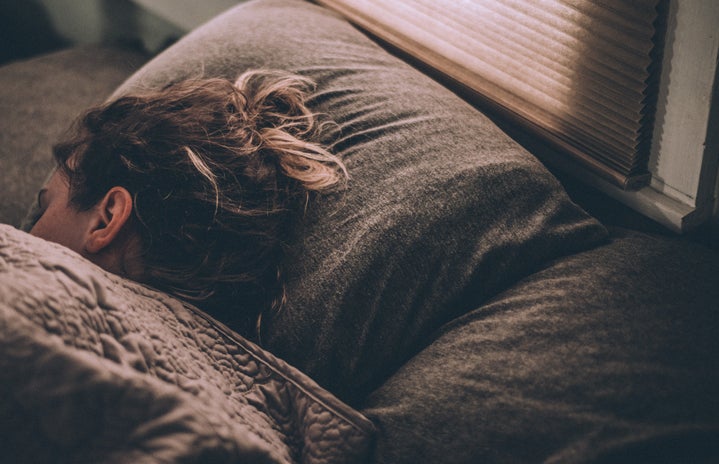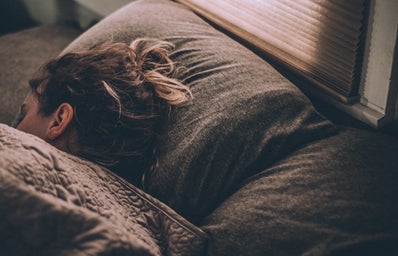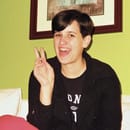There are few uses for reddit.com/r/UCI, the UCI community on Reddit, but occasionally it has listings for studies that would normally be advertised on a Ring Road flier. It is where I found a post calling for “young female” participants for a study with a $200 payout.
“I’m a young female who likes money,” I thought, so I clicked the link redirecting me to a form. It explained in the paragraph section that this study would be about how the menstrual cycle affects sleep. It then asked me questions like my age, sex, email address, how often I felt tired and if I had a diagnosed sleeping disorder. I filled out every question I could see a justification for, then submitted.
About a month later, I got an email asking to confirm my interest and to schedule a Zoom meeting. The great thing about pandemic protocols is that they made participation in the study much easier, as I never had to leave home.
The representative gave me more information about my participation. As expected, she never told me their hypotheses, but she told me that the topic had not been observed too closely in any studies before. They asked for my address to mail me ovulation test kits and an Oura Ring. The prior is like a pregnancy test, except it tells you when you can get pregnant rather than if you are. The latter is like a fitness band except on your finger.
Because I did not know my menstrual cycle, nor could I remember when my last period was, I was in the study about two months more than expected. They emailed me a link every night and morning to a form in which I would report my daily activities and sleep, respectively.

The night form asked me if I did any activities. Activities were put into four categories between “light” and “heavy,” where brisk walking was light, and a game of soccer was heavy. I did light activities every day, granted a few days in which I did nothing. The form also asked if my period started, if I had been on it and how long I spent sitting, which I did not learn that I was reporting too little for until I got the Oura Ring. I am unsure how I manage to do nothing for that long.
After they learned my menstrual cycle, they finally sent the ovulation test kits and the Oura Ring. I was not to use either until they said to. A little over a week after my period ended, I thought they would tell me to start using the ovulation kit, as I had clear skin and felt hot—literally and figuratively—which were two things I heard were signs of ovulation. But they did not ask me to use them for another week and a half.
The tests came out negative for seven days, and I worried that I maybe did not ovulate, so I emailed them about it. They replied that I should quit for some time, and they would recalculate. I did not have to fill out the daily/nightly forms for a month until my period started.
Once it did, I emailed them again and filled out the form. This time, the dates they scheduled my tests were when I expected, and I tested positive three days later.
The next month, I started wearing the ring that looked like a thick silver wedding band. Another representative walked me through downloading and giving permissions to the accompanying app. With Bluetooth, the ring connected to its app, which would track my heart rate with such accuracy that it could tell if I was sitting, walking, running, dreaming, light sleeping or deep sleeping. Light sleep, the app described, is most common, and you could easily be awakened at that time. Rapid Eye Movement (REM) is lighter than light sleep, is the dreaming state and is associated with memory. Deep sleep is hard to be woken up from and indicates physical healing. When I fell asleep while sore or sick, the app would show more deep sleep than a typical night.

The second test was about pictures. They would show an image, then ask, on a scale of one to nine, how aroused/excited it made me feel and then how disgusted/upset/uneasy. They told me upfront that some images would be “disturbing,” but I was left wondering what “arousing” would mean. Would I be seeing porn? No. It was images of bloody gore, explosions and spiders for the upsetting portion and bikini shots and ‘70s strong guys for the arousing portion. At the end, they would show me an image, then ask if I had seen it on the list before or not. For some reason they made the answers on a scale from one to three and seven to nine: one being unconfident that it is a repeated image, three being confident, seven being unconfident that it is a new image and nine being confident. I thought it was one for new images and nine for old ones for the first two weeks. So, I was left hoping that my error would be negligible in the grand scheme of the study.
Despite the second test having images of gore, the third test was the worst one. It was about short-term memory. It had me memorize letters, with simple math problems in between. I would type in the letters shown to me in order. While there were eight letters at most, it felt endless. Before the test, they would record my resting heart rate, so I assume it spiked during this one.
After the fourth morning test, they told me to wear the ring and fill out the daily/nightly forms for one more week. Then, I was finished. I sent back the ring and emailed them about my gift card. They then emailed me an e-gift card to Amazon for $200.
Most sleep studies only pay participants gift cards of about $50, I have found, but go to https://uci.co1.qualtrics.com/jfe/form/SV_262Y2UHDXKyBMDH and fill out the questions if you are interested in updates. You may also find participant calls on Ring Road fliers when we are in person again, in UCI Reddit posts, UCI class Facebook pages or any UCI Discords. Be wary: if they do not link to a Qualtrics form, the study may be fake.


